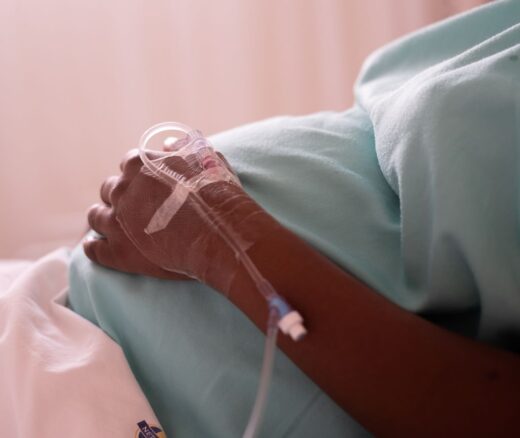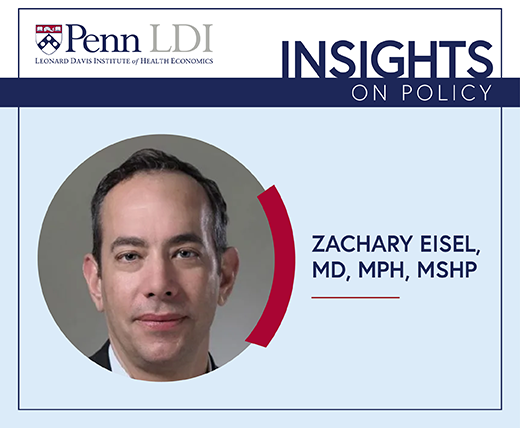Arianne Morrison is dedicated to a public health-oriented HIV research career that examines the structural, biological, and behavioral factors that drive the spread of HIV among vulnerable populations. Her research focuses on the use of implementation science to bridge the gap between highly effective biomedical HIV prevention pre-exposure prophylaxis for HIV (PrEP) and communities disproportionately affected by HIV, specifically cisgender women of color in the U.S.

Associate Fellow
Arianne Morrison
- Instructor, Infectious Diseases, Perelman School of Medicine
Related Content

Policy Recommendations for Strengthening the Accelerated Approval Program for Oncology Drugs
Memo: Delivered to the U.S. Food and Drug Administration (FDA)

Over 500 U.S. Hospitals Have Stopped Delivering Babies Since 2010
A Crisis in Maternal Care is Unfolding—and it’s Hitting Rural and Urban Communities Alike

Pennsylvania’s Big Plan to Save Rural Hospitals Gets Mixed Reviews
Stable Payments Improved Margins But Not Liquidity, New LDI Analysis Finds

Penn Nursing’s Jane Muir Wins 2025 Emergency Nurses Association Award
LDI Senior Fellow Cited for "Significant Contributions" in Research

HIV is Not a Crime: The Case for Ending HIV Criminalization
Outdated Laws Target Black and Queer Lives in Over 30 States, Fueling a Deadly Disease

LDI and Wharton’s Cynthia Chude Wins 2025 MiFF PhD Scholar Award
Selected for Current and Future Research in the Science of Amputee Care
In The Media The Guardian
Patients with Ultra-Rare Diseases Worry FDA Approach Will Leave Them Without Treatment
Interview
In The Media ABC News
Why Some Economists Say the Deficit Increase in Trump’s Bill is Dangerous
Interview

Estimated Overdose Deaths Due to the One Big Beautiful Bill Act
Research Memo: Delivered to House Speaker Mike Johnson and Majority Leader John Thune

Health Impacts of SNAP Provisions in the One Big Beautiful Bill Act
Research Memo: Delivered to House Speaker Mike Johnson and Majority Leader John Thune

Fixing The Bill: How Better Medicare Cost Reporting Can Slash U.S. Health Care Waste
Hospitals’ Current Cost Reports are Unreliable and Should be Improved, LDI Fellow Finds

How Medicaid Cuts Could Force Millions Into Nursing Homes
If Federal Support Falls, States May Slash Home- and Community-Based Services — Pushing Vulnerable Americans Into Nursing Homes They Don’t Want or Need